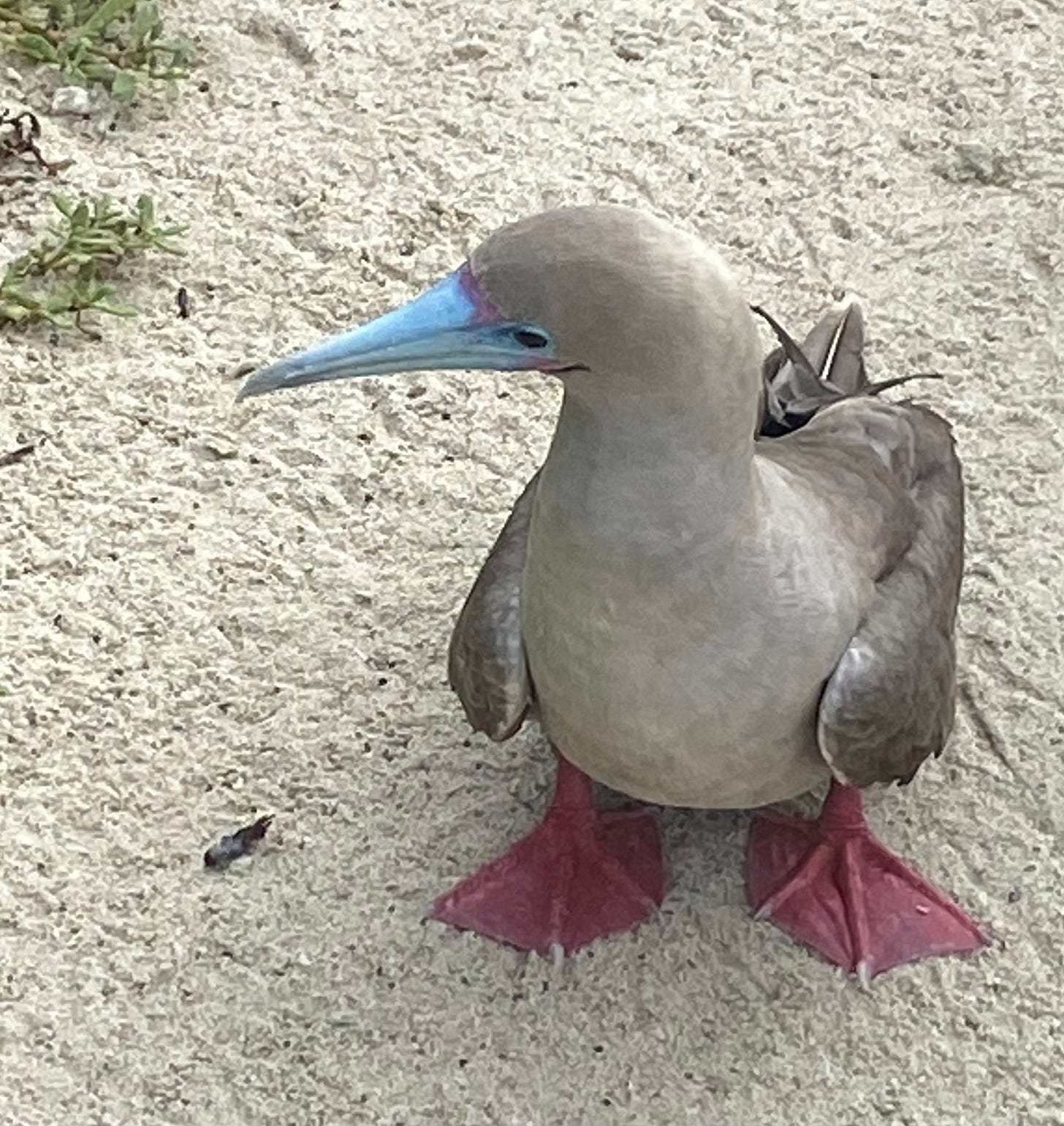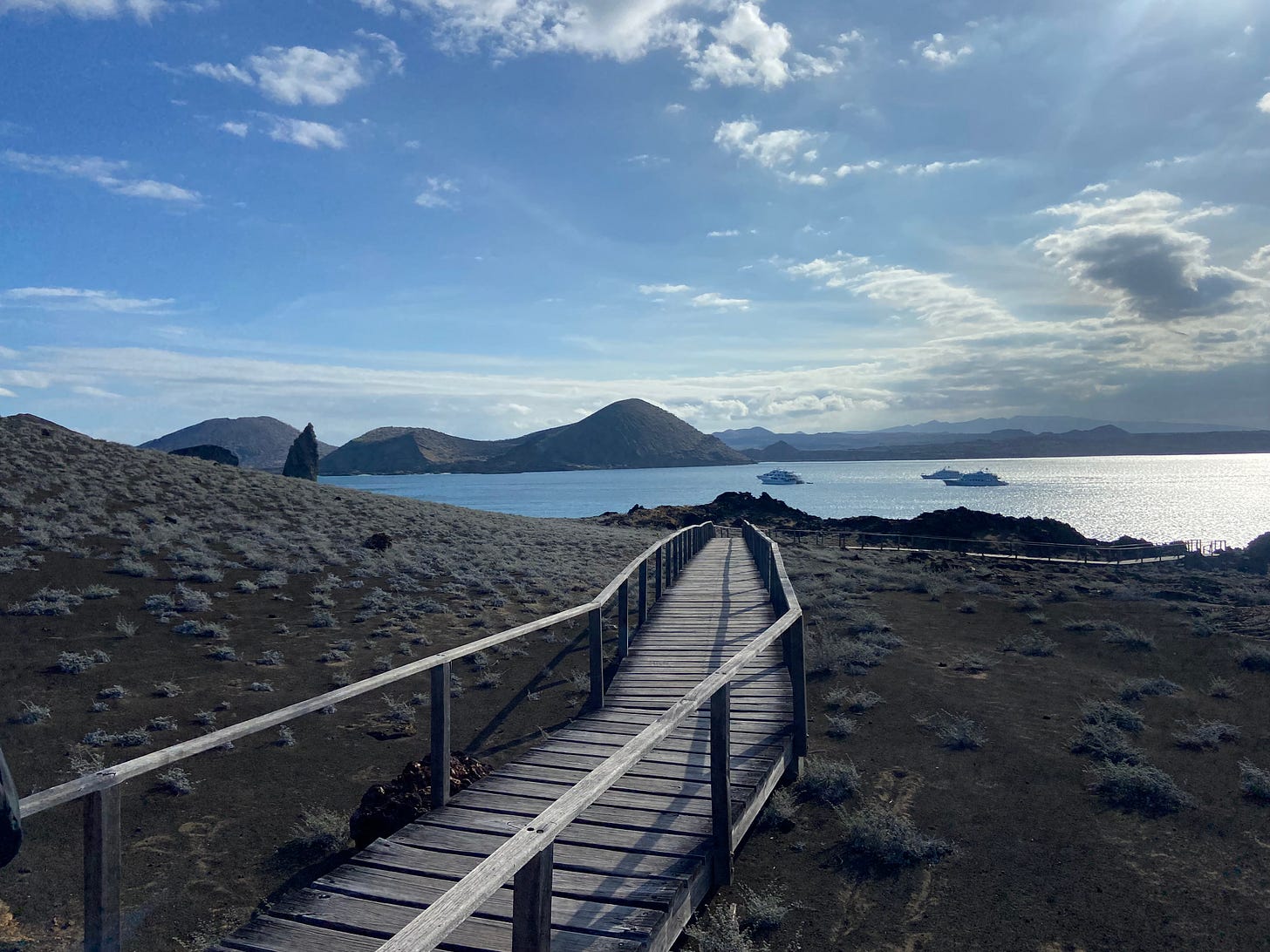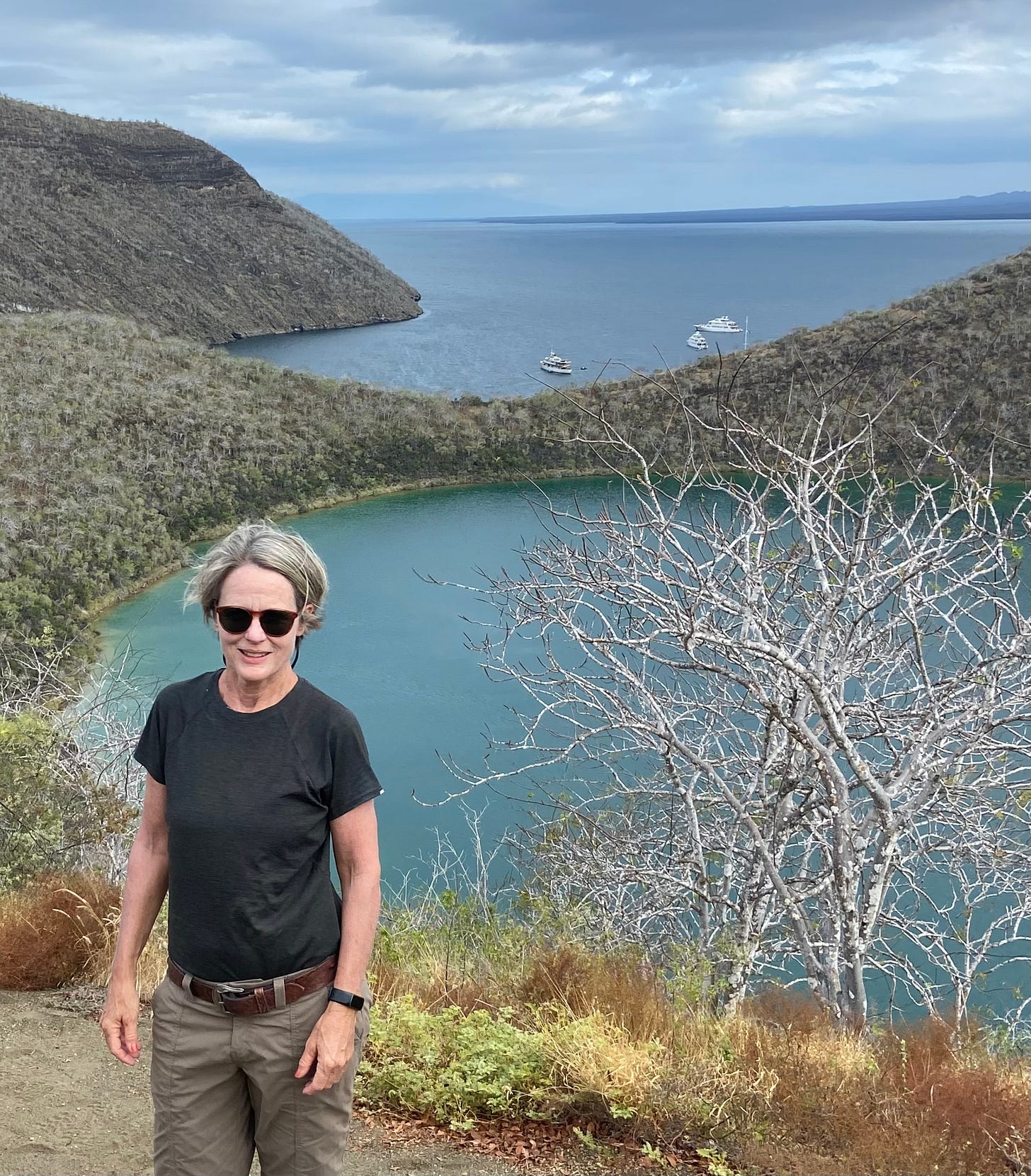“Famously fearless” is how people often describe the wildlife in the Galápagos.
Isolated for thousands of years, the giant tortoises, sea turtles, marine and land iguanas, sea lions, penguins, pelicans, flamingoes, blue- and red-footed boobies, and dozens of other species that inhabit this archipelago do not shrink back or fly away when you approach them.
In some cases, it’s quite the contrary.
While snorkeling, sea lions and penguins swam right up to our faces, as playful as puppies. Sea turtles and land iguanas settled into the middle of a hiking trail and stayed put, no matter how many people needed to walk around them.
It’s an extraordinary feeling being in this kind of company.
Upon arriving, my first reaction was to be awed by the multitude and diversity of life. But I must admit I also felt a twinge of sadness—perhaps the better word is bittersweetness. I thought this is what life is like when we don’t muck it up.
Life is abundant. Diverse. Breathtakinglly beautiful. And fearless.
By day two, however, I quickly overcame any bittersweet feelings. Instead, I found myself almost constantly in that state the University of Berkeley Professor Dacher Keltner writes about in his new book Awe: The New Science of Everyday Wonder and How It Can Transform Your Life.
Awe, Keltner writes, transforms our brains and bodies. It sharpens our reasoning, orients us toward big ideas and new insights, cools our immune system’s inflammation response, strengthens our bodies, activates our inclination to share and create strong networks, and inspires us to take actions that are good for the natural and social world around us.
Perhaps something in me sensed this—hungered for this—when I decided on this once-in-a-lifetime trip. I knew the Galapagos was a special place. One of the most volcanically active areas in the world, it spans 50,000 square miles of marine reserve and 3,000 square miles of protected islands and inlets.
It is, of course, also where Charles Darwin made the observation that led to his theory of evolution: the beaks of finches vary from one island to the next, depending on their available food sources. In other words, these birds, like other animals, adapt over time to their environments.
This led to the often-misunderstood idea of the “survival of the fittest,” by which Darwin did not mean the strongest survive but those who adapt in ways that best suit their environments do.
How we will adapt to our fast-changing world remains to be seen. Evolution, after all, occurs very slowly—not in a lifetime but over many lifetimes.
Humans, however, have a more agile capacity for reason. Reason that can recognize that human-driven climate change is in no one’s best interest.
Reason that can help us understand that, in this case, we can’t wait for evolution. Reason that can guide us to see that we need to urgently transition away from fossil fuels to clean energy. And reason that can lead us to develop heartier hearts and minds to help us respond to the many climate-driven changes already coming our way.
As I prepare to leave the Galapagos, I wonder if we might now become the ones who are famously fearless—to adapt in ways that honor the wonder of life.
One thing I know for sure: That would be another wondrous sight to behold.
P.S. I am sharing photos on Instagram—in case you’re interested in seeing more.







Lisa: It was a pleasure meeting you on this amazing once-in-a-lifetime adventure. Your comment about Charles Darwin struck me, as I have myself misunderstood his famous "survival of the fittest" theory as a possible explanation for man's aggression, where only "the strongest survive," as something potentially innate and inevitable. The idea that it's "those who adapt in ways that best suit their environments" seems more hopeful for humans and the planet, though whether we do successfully adapt remains to be seen, as you note. Also, mere survival seems a low bar. Can we, as you hopefully wonder "adapt in ways that honor the wonder of life."
So inspiring!! And your Instagram photos are wonderful!!